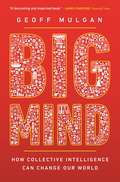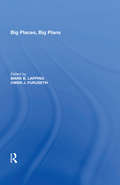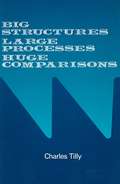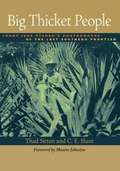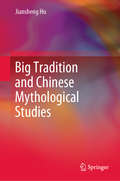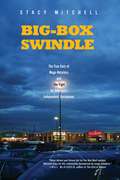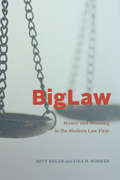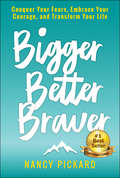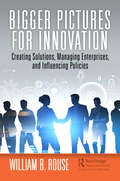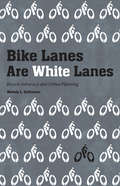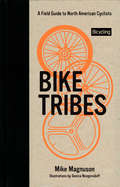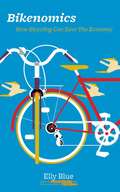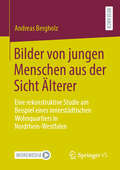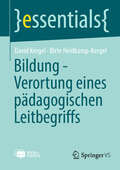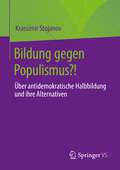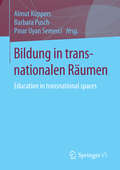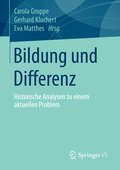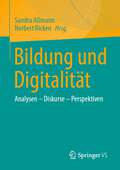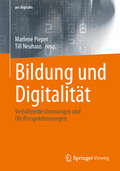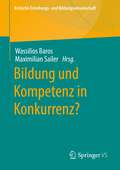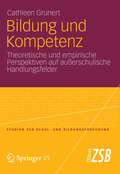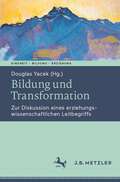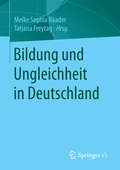- Table View
- List View
Big Mind: How Collective Intelligence Can Change Our World
by Geoff MulganA new field of collective intelligence has emerged in the last few years, prompted by a wave of digital technologies that make it possible for organizations and societies to think at large scale. This “bigger mind”—human and machine capabilities working together—has the potential to solve the great challenges of our time. So why do smart technologies not automatically lead to smart results? Gathering insights from diverse fields, including philosophy, computer science, and biology, Big Mind reveals how collective intelligence can guide corporations, governments, universities, and societies to make the most of human brains and digital technologies.Geoff Mulgan explores how collective intelligence has to be consciously organized and orchestrated in order to harness its powers. He looks at recent experiments mobilizing millions of people to solve problems, and at groundbreaking technology like Google Maps and Dove satellites. He also considers why organizations full of smart people and machines can make foolish mistakes—from investment banks losing billions to intelligence agencies misjudging geopolitical events—and shows how to avoid them.Highlighting differences between environments that stimulate intelligence and those that blunt it, Mulgan shows how human and machine intelligence could solve challenges in business, climate change, democracy, and public health. But for that to happen we’ll need radically new professions, institutions, and ways of thinking.Informed by the latest work on data, web platforms, and artificial intelligence, Big Mind shows how collective intelligence could help us survive and thrive.
Big Places, Big Plans (Perspectives On Rural Policy And Planning Ser.)
by Mark B. LappingWith origins in the late 1960s, a 'quiet revolution' in land use planning and control has taken hold across North America. First seen as a manifestation of the environmental movement, the revolution prompted governments at several levels to attempt to protect critical areas and vulnerable natural resources. Many of the most dramatic and far-reaching shifts in planning regimes have occurred in large-scale, environmentally unique or sensitive regions. It is these big places, looming large in the American and Canadian psyches, that are the focus of this edited volume. Each of the chapters reflects on the contemporary challenge of environmental and land use planning. Ten leading distinguished scholars here provide thoughtful analyses and critical insights into the processes and contexts shaping the innovative planning and policy schemes in seven regional landscapes.
Big Structures, Large Processes, Huge Comparisons
by Charles TillyThis bold and lively essay is one of those rarest of intellectual achievements, a big small book. In its short length are condensed enormous erudition and impressive analytical scope. With verve and self-assurance, it addresses a broad, central question: How can we improve our understanding of the large-scale processes and structures that transformed the world of the nineteenth century and are transforming our world today? Tilly contends that twentieth-century social theories have been encumbered by a nineteenth century heritage of “pernicious postulates.” He subjects each misleading belief to rigorous criticism, challenging many standard social science paradigms and methodologies. As an alternative to those timeless, placeless models of social change and organization, Tilly argues convincingly for a program of concrete, historically grounded analysis and systematic comparison. To illustrate the strategies available for such research, Tilly assesses the works of several major practitioners of comparative historical analysis, making skillful use of this selective review to offer his own speculative, often unconventional accounts of our recent past. Historically oriented social scientists will welcome this provocative essay and its wide-ranging agenda for comparative historical research. Other social scientists, their graduate and undergraduate students, and even the interested general reader will find this new work by a major scholar stimulating and eminently readable. This is the second of five volumes commissioned by the Russell Sage Foundation to mark its seventy-fifth anniversary. "In this short, brilliant book Tilly suggests a way to think about theories of historical social change....This book should find attentive readers both in undergraduate courses and in graduate seminars. It should also find appreciative readers, for Tilly is a writer as well as a scholar." —Choice
Big Thicket People
by Thad Sitton C. E. HuntLiving off the land-hunting, fishing, and farming, along with a range of specialized crafts that provided barter or cash income-was a way of life that persisted well into the twentieth century in the Big Thicket of southeast Texas. Before this way of life ended with World War II, professional photographer Larry Jene Fisher spent a decade between the 1930s and 1940s photographing Big Thicket people living and working in the old ways. His photographs, the only known collection on this subject, constitute an irreplaceable record of lifeways that first took root in the southeastern woodlands of the colonial United States and eventually spread all across the Southern frontier. Big Thicket People presents Fisher's photographs in suites that document a wide slice of Big Thicket life-people, dogs, camps, deer hunts, farming, syrup mills, rooter hogs and stock raising, railroad tie making, barrel stave making, chimney building, peckerwood sawmills, logging, turpentining, town life, church services and picnics, funerals and golden weddings, and dances and other amusements. Accompanying each suite of images is a cultural essay by Thad Sitton, who also introduces the book with a historical overview of life in the Big Thicket. C. E. Hunt provides an informative biography of Larry Jene Fisher.
Big Tradition and Chinese Mythological Studies
by Jiansheng HuThis book focuses on reinterpreting mythical China from the perspective of the cultural theory of big tradition. It is divided into two parts: the first explains the theoretical development and features of the Chinese version of big tradition, identifying the differences between the Eastern and Western cultural traditions (big tradition and great tradition). The second part then reinterprets the core values and mythical ideas of Chinese civilization and traditional culture from the perspective of big tradition.Moving beyond the small tradition of text centrism and using new methods and materials, the book reveals the original meaning and the cultural coding function of big tradition during the preliterate period. Drawing on integrated evidence from literature handed down from ancient times, oral and intangible cultural heritage, tangible culture, cross-cultures, image culture and unearthed documents, the book interprets Chinese cultural traditions and spiritual values from local, archaeological, experiential and survival perspectives, to help readers better understand the mythical codes and genes of early Chinese culture.
Big-Box Swindle: The True Cost of Mega-Retailers and the Fight for America's Independent Businesses
by Stacy MitchellLarge retail chains have become the most powerful corporations in America and are rapidly transforming our economy, communities, and landscape. In this deft and revealing book, Stacy Mitchell illustrates how mega-retailers are fueling many of our most pressing problems, from the shrinking middle class to rising water pollution and diminished civic engagement.Mitchell's investigation takes us from the suburbs of Cleveland to a fruit farm in California, the stockroom of an Oregon Wal-Mart, and a Pennsylvania town's Main Street. She uncovers the shocking role government policy has played in the expansion of mega-retailers and builds a compelling case that communities composed of many small businesses are healthier and more prosperous than those dominated by large chains.More than a critique, Big-Box Swindle draws on real life to show how some communities are successfully countering the spread of mega-retailers and rebuilding their local economies. Mitchell describes innovative approaches-from cutting-edge land-use policies to small-business initiatives-that together provide a detailed road map to a more prosperous and sustainable future.From the Hardcover edition.
BigLaw: Money and Meaning in the Modern Law Firm (Chicago Series in Law and Society)
by Mitt Regan Lisa H. RohrerThe Great Recession intensified large law firms’ emphasis on financial performance, leading to claims that lawyers in these firms were now guided by business rather than professional values. Based on interviews with more than 250 partners in large firms, Mitt Regan and Lisa H. Rohrer suggest that the reality is much more complex. It is true that large firm hiring, promotion, compensation, and termination policies are more influenced by business considerations than ever before and that firms actively recruit profitable partners from other firms to replace those they regard as unproductive. At the same time, law firm partners continue to seek the non-financial rewards of being members of a distinct profession and are sensitive to whether their firms are committed to providing them. Regan and Rohrer argue that modern firms responding effectively to business demands while credibly affirming the importance of non-financial professional values can create strong cultures that enhance their ability to weather the storms of the modern legal market.
Bigger Better Braver: Conquer Your Fears, Embrace Your Courage, and Transform Your Life
by Nancy Pickard"Nancy Pickard shows us how to override our fears, bust through our excuses, and go for our dreams. Filled with relatable stories, tried-and-true teachings, tools, tips, as well as useful exercises and meditations, this book supports you in stepping out of your old definition of self and re-thinking your next chapter." - Kelley Kosow, author of The Integrity AdvantageIn Bigger, Better, Braver, master integrative life coach Nancy Pickard challenges us with life-altering questions: Is there something you’d love to do but haven’t found the courage?Do you want to give yourself over to the fullest possible experience of living? Do you want to take a leap toward a bigger, better, braver life? Bigger Better Braver is a proven, step-by-step guide for executing the vision you have to live the life you are meant to lead. Enhanced with inspirational client and personal stories, it shows you how to get unstuck from old behaviors and take bold steps toward something new and larger in your life.The book is a journey, as Nancy lays out time-tested tools to face and overcome, get free of your comfort zone, cultivate fear as a force for change, and discover courage to take bold steps in the future. She teaches how to be more present, use your intuition, and stop living on autopilot. Chapters include: •Uncover Your Vision•Planning Your Leap•Understand Faith and Fear•Staying the Course, and more. Ms. Pickard proves her methods work. She reinvented herself as a master life coach, and climbed Mount Kilimanjaro at 61- experiences that became her vision for your bigger life. Not everyone must climb a mountain to live larger. Your bigger life can be anything that brings elation, accomplishment, fulfillment, and connection with the spirit of who you are. Bigger Better Braver provides the pathway to uncover your personal vision and opens the door for a major life change."Nancy’s step-by-step approach to change provides the puzzle pieces that create the inner foundation for successful outer change that is Bigger, Better and Braver. May you use this process to create the better story that your life is asking, and may that new story equip you to serve the world in the way that only you can." - Gail Larsen, author of Transformational Speaking
Bigger Pictures for Innovation: Creating Solutions, Managing Enterprises, and Influencing Policies
by William B. RouseThis book comprises a set of stories about being an engineer for many decades and the lessons the author learned from research and practice. These lessons focus on people and organizations, often enabled by technology. The settings range from airplanes, power plants, and communication networks to ecosystems that enable education, healthcare, and transportation. All of these settings are laced with behavioral and social phenomena that need to be understood and influenced. The author’s work in these domains has often led to the question: "Well, why does it work like that?" He invariably sought to understand the bigger picture to find the sources of requirements, constraints, norms, and values. He wanted to understand what could be changed, albeit often with much effort to overcome resistance. He found that higher levels of an ecosystem often provide the resources and dictate the constraints imposed on lower levels. These prescriptions are not just commands. They also reflect values and cultural norms. Thus, the answers to the question were not just technical and economic. Often, the answers reflected eons of social and political priorities. The endeavors related in the book frequently involved addressing emerging realities rather than just the status quo. This book is an ongoing discovery of these bigger pictures. The stories and the lessons related in this book provide useful perspectives on change. The understanding of people and organizations that emerges from these lessons can help to enable transformative change. Fundamental change is an intensely human-centric endeavor, not just for the people and organizations aspiring to change, but also for the people helping them. You will meet many of these people in this book as the stories unfold. The genesis of this book originated in a decision made early in the author’s career. He had developed a habit of asking at the end of each day, "What did I really accomplish today?" This was sometimes frustrating as he was not sure the day had yielded any significant accomplishments. One day it dawned on him that this was the wrong question – He needed to ask, "What did I learn today?" It is always possible to learn, most recently about public health and climate change. In planning this book, the author first thought in terms of accomplishments such as projects conducted, systems built, and articles and books published. He could not imagine this being interesting to readers. Then, it struck him – It is much more interesting to report on what he learned about people and organizations, including how he helped them accomplish their goals. This is a book of stories about how these lessons emerged. In planning this book, the author first thought in terms of accomplishments such as projects conducted, systems built, and articles and books published. He could not imagine this being interesting to readers. Then, it struck him – It is much more interesting to report on what he learned about people and organizations, including how he helped them accomplish their goals. This is a book of stories about how these lessons emerged.
Bike Lanes Are White Lanes: Bicycle Advocacy and Urban Planning
by Melody L HoffmannThe number of bicyclists is increasing in the United States, especially among the working class and people of color. In contrast to the demographics of bicyclists in the United States, advocacy for bicycling has focused mainly on the interests of white upwardly mobile bicyclists, leading to neighborhood conflicts and accusations of racist planning. In Bike Lanes Are White Lanes, scholar Melody L. Hoffmann argues that the bicycle has varied cultural meaning as a “rolling signifier.” That is, the bicycle’s meaning changes in different spaces, with different people, and in different cultures. The rolling signification of the bicycle contributes to building community, influences gentrifying urban planning, and upholds systemic race and class barriers. In this study of three prominent U.S. cities—Milwaukee, Portland, and Minneapolis—Hoffmann examines how the burgeoning popularity of urban bicycling is trailed by systemic issues of racism, classism, and displacement. From a pro-cycling perspective, Bike Lanes Are White Lanes highlights many problematic aspects of urban bicycling culture and its advocacy as well as positive examples of people trying earnestly to bring their community together through bicycling.
Bike Tribes: A Field Guide to North American Cyclists
by Mike MagnusonA hilarious and essential illustrated field guide that breaks down the tribes of the bicycling community: from the spandex-clad weekend warriors to the hipsters on street bikes who love to laugh at each other (and themselves) Anyone who rides a bike knows the bicycling world is made up of tribes. From tattooed messengers to pretty urban hipsters to grouchy shop owners, they may look like they live on different planets, but they are united by their abiding love of bikes—and often their total disdain of other members of this insular world. Bike Tribes is the Preppy Handbook of bicycling, replete with one-of-a-kind illustrations that taxonomize the special habits, clothing, preferences, and predilections of cyclists. Mike Magnuson, an avid rider, bicycling expert, and longtime contributor to Bicycling magazine, covers the basics of racing, etiquette, and apparel and gear, including running commentary on cycling culture, poking holes in practically every pretension in the cycling world. Bike Tribes is a fun romp through the various subcultures in the bike community—bound to appeal to newcomers and grizzled cyclists alike.
Bikenomics
by Elly BlueBikenomics provides a surprising and compelling new perspective on the way we get around and on how we spend our money, as families and as a society. The book starts with a look at Americans' real transportation costs, and moves on to examine the current civic costs of our transportation system. Blue tells the stories of people, businesses, organizations, and cities who are investing in two-wheeled transportation. The multifaceted North American bicycle movement is revealed, with its contradictions, challenges, successes, and visions.
Bilder von jungen Menschen aus der Sicht Älterer: Eine rekonstruktive Studie am Beispiel eines innerstädtischen Wohnquartiers in Nordrhein-Westfalen
by Andreas BergholzDieses Buch widmet sich einer Forschungslücke im Bereich der Generationenforschung. Anhand eines rekonstruktiven Zugangs legt Andreas Bergholz unterschiedliche Perspektiven von älteren Menschen auf Jüngere in ihrer Komplexität und Vielfalt jenseits von Stereotypen offen. Am Beispiel eines innerstädtischen Wohnquartiers bringt der Autor diese Erkenntnisse mit der Bedeutung des unmittelbaren Wohnumfeldes für die Aneignung und Aktualisierung von Perspektiven auf junge Menschen in Verbindung und legt dar, welche Rolle das Quartier als intergenerationaler Begegnungsort spielen kann.
Bildung - Verortung eines pädagogischen Leitbegriffs (essentials)
by David Kergel Birte Heidkamp-KergelDas essential bietet eine fundierte und kompakte Einführung in den Bildungsbegriff. Es schlägt einen Bogen von seinen philosophischen Wurzeln und klassischen Bildungstheorien bis hin zu aktuellen Paradigmen der Bildungsforschung. Bildung erscheint dabei als Selbst- und Weltverhältnis, als Persönlichkeitsentfaltung, Kompetenzentwicklung sowie als ethische Aufgabe.Behandelt werden unter anderem geisteswissenschaftliche, kritische und empirische Perspektiven sowie disziplinäre Konzepte wie kulturelle, ästhetische, inklusive und frühkindliche Bildung. Reflexionsimpulse zu Halbbildung, Bildungsethik und digitalen Herausforderungen runden den Band ab. Ein begleitender Online-Kurs bietet vertiefende Materialien und praxisnahe Anregungen. Den kostenlosen Zugang zum Online-Kurs finden Sie direkt im Buch.
Bildung für nachhaltige Entwicklung zwischen politischer Erwartung und schulischer Praxis: Eine bildungs- und umweltsoziologische Analyse
by Johanna WeselekDas zentrale Erkenntnisinteresse der Studie bezieht sich auf die Frage, wie Nachhaltigkeit in Form einer Bildung für nachhaltige Entwicklung Einzug in das Bildungssystem findet und im Schulalltag von Lehrkräften wahrgenommen, thematisiert und praktiziert wird. Für die Beantwortung der Frage wurde eine qualitativ-rekonstruktive Untersuchung mithilfe der dokumentarischen Methode durchgeführt. Bildung für nachhaltige Entwicklung aus soziologischer Perspektive zu betrachten, ermöglicht eine kritische Auseinandersetzung mit der politischen Forderung, durch vermehrte Bildung zu einer nachhaltigeren Entwicklung beizutragen.
Bildung gegen Populismus?!: Über antidemokratische Halbbildung und ihre Alternativen
by Krassimir StojanovBildung kann und soll von ihrem Begriff her Populismus entgegenwirken; die tatsächliche Bildungspraxis begünstigt jedoch oft seine Verbreitung. Diese Praxis stilisiert vielfach Herkunft und „kulturelle Identität“ als absolute Faktoren hoch, die individuelles Handeln und Denken angeblich determinieren. Auf der Grundlage der bildungsphilosophischen Schriften von Humboldt, Dewey, Adorno und vor allem Hegel sowie anhand von einschlägigen Fallbeispielen entwickelt das Buch ein Alternativmodell institutionalisierter Bildung, das auf die Kultivierung von autonomer Individualität durch die begriffliche Selbst-Artikulation der je einzigartigen Erfahrungen, Anliegen, Ideale und Werte der Einzelnen ausgerichtet ist. Dieses Model bezweckt die Befähigung aller Schüler*innen zu demokratischer Partizipation und – damit verbunden – ihre Immunisierung gegen populistische Ideologien.
Bildung in transnationalen Räumen: Education in transnational spaces
by Almut Küppers Barbara Pusch Pınar Uyan-SemerciDie Bedeutung des transnationalen deutsch-türkischen Raumes wächst und parallel dazu das Interesse an seiner Erforschung. Bildungsinstitutionen sind ein Teilaspekt der fortschreitenden Transnationalisierung. Die AutorInnen diskutieren, inwiefern deutsche, türkische und deutsch-türkische Bildungsinstitutionen zum Aufbau von transnationalem Bildungskapital (Sprach-, Fach-, Landes- und Kulturkenntnisse) beitragen. Eröffnet die Verortung in transnationalen Räumen Schulen und Universitäten im Zeitalter von Globalisierung und Migration neue Möglichkeiten der Profilbildung? Erleichtert dies den Umgang mit Heterogenität? Ausgehend von deutsch-türkischen Beispielen werden Denkanstöße geliefert, die auf andere transnationale Räume übertragbar sind.
Bildung nach reaktionären Revolutionen: Was sich von der TV Serie The Handmaid’s Tale lernen lässt
by Anja BesandDer vorliegende Band ist der neunte Band einer Reihe, in der sich eine Gruppe von Wissenschaftlerinnen und Wissenschaftlern, die sich 2014 an der Technischen Universität Dresden unter der Bezeichnung WEITERSEHEN – interdisziplinäre Perspektiven Dresdner Serienforschung zusammengefunden haben, mit sozial- und kulturwissenschaftlichen Fragen im Kontext aktueller TV Serien beschäftigt. Der hier vorliegende Band ist einer der Düstersten, den die Gruppe bislang vorgelegt hat. Es geht um Bildung nach reaktionären Revolutionen oder die Frage, wie wir dem autoritären Sog begegnen, der in den westlichen Gesellschaften zunehmend sichtbar wird. Im Mittelpunkt dieses Bandes steht eine dystopische Erzählung. Eine Erzählung über reaktionäre Revolutionen, Umweltkatastrophen und Reproduktionskrisen. Eine Erzählung über Unfreiheit, sexualisierte Gewalt, Maskulismus und Macht. Die Erzählung ist dabei mehr als 30 Jahre alt und gleichzeitig so aktuell, dass man sich die Augen reiben möchte. Es geht um: The Handmaids Tale – eine Serie, deren Kostüme heute regelmäßig in Demonstrationskontexten auftauchen. Eine Serie, deren Urtext bereits zum kanonischen Bestandteil schulischer Pflichtlektüren geworden ist und die doch gleichzeitig als eine der aktuellsten Serienerzählungen zu bewerten ist.
Bildung und Differenz: Historische Analysen zu einem aktuellen Problem
by Carola Groppe Gerhard Kluchert Eva MatthesIn der empirischen Bildungsforschung wie in der erziehungswissenschaftlichen Diskussion spielt die Aufklärung des Zusammenhangs von Bildung und Differenz eine wichtige Rolle. Der Band, hervorgegangen aus einer Tagung der Sektion Historische Bildungsforschung in der Deutschen Gesellschaft für Erziehungswissenschaft, will zu dieser Aufklärung beitragen, indem er die Problemanalyse um die historische Dimension bereichert und die Wechselbeziehung von Bildung und Differenz in ihrer Entstehung und Veränderung erfasst. Dabei werden unterschiedliche Differenzkategorien wie soziale Herkunft, Geschlecht, Behinderung und ethnische Zugehörigkeit in den Blick genommen und unterschiedliche Aspekte von Bildung berücksichtigt.
Bildung und Digitalität: Analysen – Diskurse – Perspektiven
by Norbert Ricken Sandra AßmannMit ›Bildung‹ und ›Digitalität‹ wird ein intensiv diskutiertes Spannungsfeld markiert: Einerseits wird oft die ›digitale Rückständigkeit‹ von Schule beklagt, andererseits aber lassen sich auch pädagogische Skepsis und Hemmnisse nicht einfach übersehen. An dieser Spannung setzen die Beiträge des Bandes an und fragen sowohl nach den Herausforderungen der ›Bildung‹ durch ›Digitalität‹ als auch umgekehrt nach den Anforderungen an ›Digitalität› durch ›Bildung‹. Das macht aber nötig, ›Digitalisierung‹ nicht bloß als (gar technische) Anwendungsproblematik und didaktische Herausforderung aufzunehmen, sondern auch (grundlagen-)theoretisch zu reflektieren. Dabei werden entlang der Fragen nach den jeweiligen Medien-, Subjekt- und Wissensformationen des ›Digitalen‹ auch Konturen eines pädagogischen Strukturwandels erkennbar und diskutierbar.
Bildung und Digitalität: Verhältnisbestimmungen und (Re)Perspektivierungen (ars digitalis)
by Till Neuhaus Marlene PieperBildung und Digitalität bilden einen Zusammenhang, der in seiner Dringlichkeit an unzähligen wissenschaftlichen, institutionellen und gesellschaftlichen Stellschrauben diskutiert und gestaltet wird. Der überwältigende Großteil der Diskurse, Abhandlungen und Visionen gruppieren sich um das Schlagwort der „Digitalität“, welches in seiner Wirkmacht auf sämtliche Lebensbereiche als entscheidende neue Rahmenbedingung für bildungsbezogene Entwicklungen anerkannt wird. „Bildung“ als Konzept rückt indes nicht in der gleichen Komplexität in den Fokus; die Dimension des Bildungsbegriffs bleibt unterbetont. Findet das Nachdenken über Bildung und Digitalität gar in Isolation vom Bildungsbegriff und seinen Verankerungen statt? Wird in den mannigfaltigen Konfigurationen einer „digitalen Bildung“ überhaupt deutlich, was Bildung will und sein kann? Diese Schlagseite muss überraschen, zeichnet sich der Begriff „Bildung“ als „God-Term“ der Pädagogik doch durch seinen historisch wie theoretisch reichhaltigen Unterbau sowie seine kulturelle Verankerung im deutschsprachigen Raum aus. Dieser Band nimmt sich diesen eklatanten Leerstellen und Verkürzungen im Diskurs um Digitalität an, indem er die Komplexität des Bildungsbegriffs für sein Publikum aufschlüsselt und für drängende Fragestellungen zum Lehren und Lernen in einer digitalisierten Welt nutzbar macht. Der Band geht davon aus, dass viele prävalente Fragenkomplexe aus dem Bereich der Digitalität bereits anteilig im Bildungsbegriff diskutiert worden sind, sodass ein Zusammendenken auf Augenhöhe richtungweisend ist.
Bildung und Kompetenz in Konkurrenz? (Kritische Erziehungs- und Bildungswissenschaft)
by Wassilios Baros Maximilian SailerDas zeittypische Verständnis reduziert Bildung in großem Maße auf schulische Leistung, den Erwerb von Qualifikationen und den Nachweis von Kompetenzen. Bildung, das ist nicht erst seit den großen Schulleistungsstudien bekannt, steht immer im Spannungsverhältnis unterschiedlicher Interessen, z.B. ökonomischer und pädagogischer. In diesem Band sollen diese Spannungsverhältnisse thematisiert und kritisch reflektiert werden und die Vielschichtigkeit bzw. Ganzheitlichkeit von Bildung aufgezeigt werden.
Bildung und Kompetenz: Theoretische und empirische Perspektiven auf außerschulische Handlungsfelder (Studien zur Schul- und Bildungsforschung #44)
by Cathleen GrunertBildung und Kompetenz als Begriffskonstruktionen werden im öffentlichen Diskurs, aber oft auch auf wissenschaftlichem Terrain vor allem mit schulischen Formen des Lernens in Verbindung gebracht. Dementsprechend sind empirische Forschungen im Kontext "Empirischer Bildungsforschung" aktuell stark schulbezogen und in ihren theoretischen Bezügen auf die Begriffe von Bildung und Kompetenz meist einseitig produktbezogen. Empirische Untersuchungen, die theoretisch und methodisch begründet nach der Rolle außerschulischer Handlungsfelder für die Lern- und Bildungsprozesse von Kindern und Jugendlichen fragen, sind aktuell jedoch vergleichsweise selten. In diesem Buch wird im Anschluss an eine Analyse der beiden zentralen Begriffe von Bildung und Kompetenz und ihrer Verschränkungen sowie eine kritische Sichtung des aktuellen nationalen und v.a. us-amerikanischen Forschungsstand danach gefragt, wie man sich diesem Feld in theoretischer und methodischer Perspektive nähern kann. Dafür wird auf den Ansatz der activity theory zurückgegriffen, der sowohl einen theoretischen als auch einen forschungsheuristischen Rahmen bietet, um sich dieses Feld in seiner Komplexität erschließen zu können.
Bildung und Transformation: Zur Diskussion eines erziehungswissenschaftlichen Leitbegriffs (Kindheit – Bildung – Erziehung. Philosophische Perspektiven)
by Douglas YacekDie Idee der Transformation ist in der internationalen Erziehungswissenschaft geradezu allgegenwärtig geworden. Bildung wird in diesem Rahmen nicht mehr allein als Aneignung von Lehrinhalten, Kompetenzen oder kanonisierten Bildungsgütern verstanden, sondern vornehmlich als Prozess charakterisiert, in dem sich unsere Beziehung zu uns Selbst, zu Anderen und zur Welt grundlegend verändert. Doch was heißt es, eine Transformation zu erleben? Welche Transformationstheorien und -ansätze gibt es in der Erziehungswissenschaft? Wozu sind sie nützlich und wo haben sie Schwachstellen? Dieser Band befasst sich mit diesen und anderen zentralen Fragen der zeitgenössischen Diskussion zu Bildung und Transformation, um einen systematischen Überblick über dieses wichtige Forschungsfeld darzubieten.
Bildung und Ungleichheit in Deutschland
by Meike Sophia Baader Tatjana FreytagAnliegen des Bandes ist es, aufzuzeigen, wie multifaktoriell Bildungsungleichheit ist. Er kann auch als ein Beitrag der Bildungsforschung zur aktuellen R#65533;ckkehr der Kategorie der sozialen Ungleichheit angesichts un#65533;bersehbarer gesellschaftlicher Abkoppelungsprozesse gesehen werden. Die herausragende Bedeutung von Bildung f#65533;r die Lebensperspektiven junger Menschen in Deutschland ist unbestritten. Der Erwerb schulischer und beruflicher Bildungsqualifikationen spielt eine Schl#65533;sselrolle im sozialen Integrationsprozess. Bildungsabschl#65533;sse sind entscheidend f#65533;r die Chancen auf gesellschaftlich anerkannte Positionen, auch wenn Bildung allein l#65533;ngst kein Garant mehr daf#65533;r darstellt. Da sich die Auswirkungen von sozialer Benachteiligung jeweils kumulativ-kontextuell darstellen, werden die Bereiche Familie und Kindheit, Schule und Hochschule sowie au#65533;erschulische Bildung und Weiterbildung in den Blick genommen und es wird nach Durchquerungen, Genderaspekten, Intersektionalit#65533;t und Inklusion gefragt.
